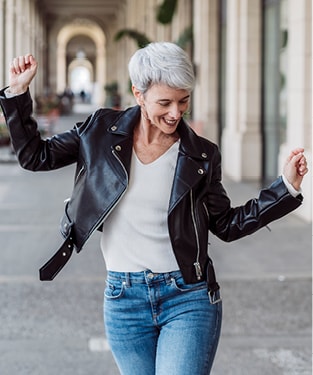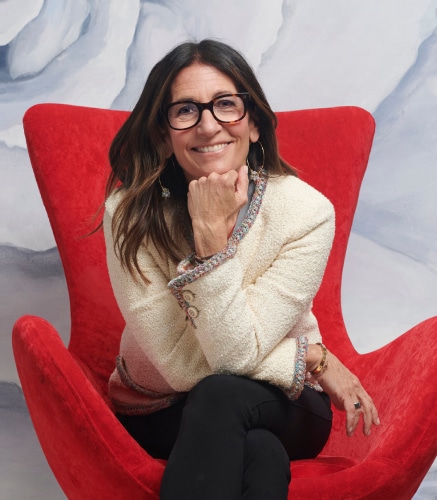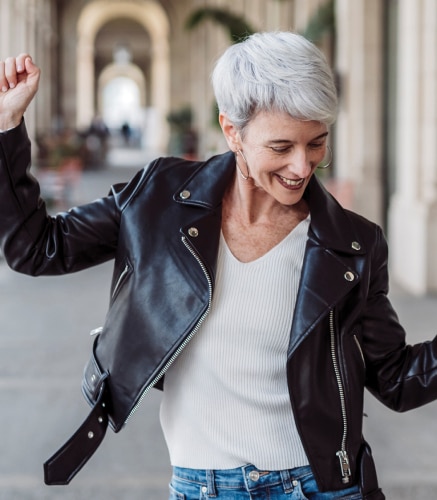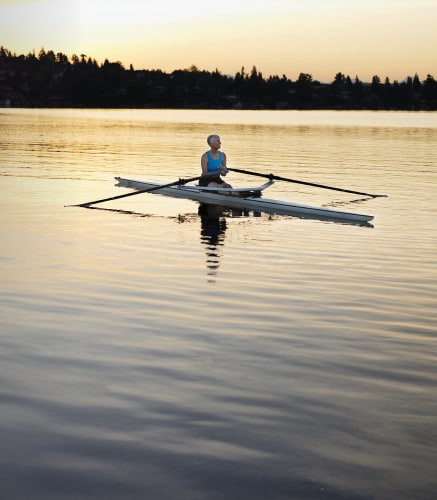The world’s best wine is a product of hard work, expertise, resilience, and of course, time. For Rosann Mitrione, the same could be said for starting a business.
Driven by a passion for wine and the courage to follow her dreams, she left her 30-year career to found Michael Ros Winery with her husband in 2018. Today, Rosann is proof that with the right mix of intentionality and dedication, it’s never too late to take a chance on big dreams — in fact, like fine wine, the outcome may just get better with age. Read on to learn how she grew from vision to vineyard and is cultivating the future of her dreams for herself and her family.
Rosann, clearly your journey has been filled with some twists and turns. Tell us a little about what led you to where you are today?
About ten years ago, my husband, Mike, and I started having conversations about what was next for us. Our oldest child was in college, and we had another one in high school, and another one right behind that. We were fairly young for having children that age, and so we started talking about what it is we wanted the next chapter to look like.
We joke that we should have called the winery ‘Phase Two’ because it's kind of the way that we think about it. For the first phase of our life, it was all about the kids. And then we took a step back and said, ‘Okay, what do we want?’ We were in our mid-forties and we both had big corporate jobs. While I loved the people I worked with, I did not love the travel anymore, and after 30 years, there were some parts of my job I was frustrated with. I was ready to leave corporate America and try entrepreneurship. And so, we started talking about what kind of business we would want to own.
There were a couple of things that happened in our life that led us to wine. My husband went to a meeting one day and realized he didn't know as much about wine as his peers did, so he started taking a wine class called ‘Wines of the World.’. In the class, the assignment was to go buy a couple bottles from a specific region and taste them. We, of course, are overachievers, so we went to the wine store and instead of getting three wines to taste, we got ten. The manager of the store loved us! I'd highly recommend that you don't do this class more than once, because your liver probably can't handle it.
Joking aside, it really was an eye-opening experience for us. So, at the same time we were thinking about our next chapter, we started falling in love with wine. And the rest is history.
What steps did you take to begin writing this next chapter?
We sat at a kitchen table and created a strategic plan — something I never would have known how to do if it weren’t for my decades of experience in corporate America. We wrote out a mission statement: What did we want the winery to stand for? And how on earth are we going to go from two corporate jobs to being independent financially?
One of the complexities — and in our case, gifts — of starting a winery is that it takes a really long time. We bought a 268-acre property in the Texas High Plains in 2017 and we planted our first grapes in 2018. While we waited for the grapes to grow, we stayed in our full-time jobs and continued to save, which really allowed us to make the transition thoughtfully. In 2021, the pandemic enabled my husband to shut down his office in Dallas and work remotely, which freed us up to be able to relocate to Fredericksburg, where we’d go on to open our production facility and, most recently, our tasting room. While many wineries open a tasting room first in order to start making revenue, we opted for a different timeline. We started the business in 2017, but we didn’t sell our first bottle of wine until 2023. It was a long runway, but it was strategic for us because it allowed us to continue working our full-time jobs while we worked toward the long-term plan.
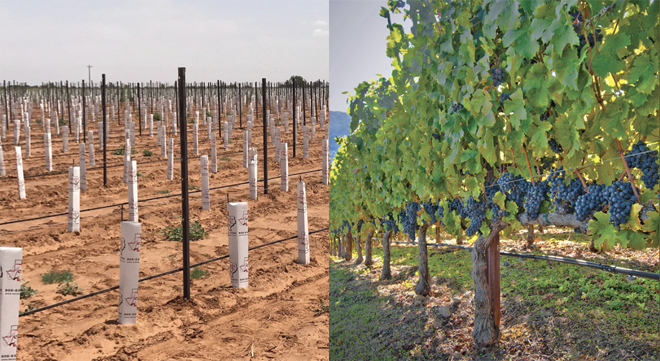
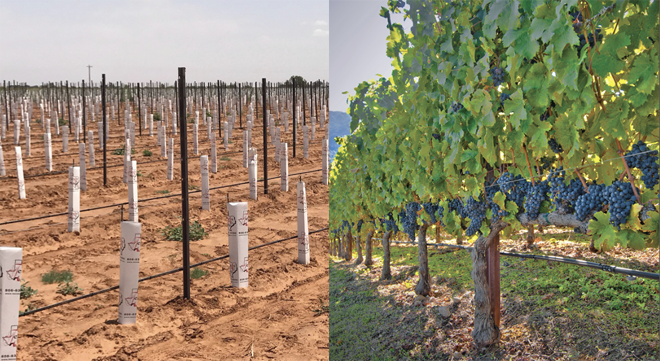
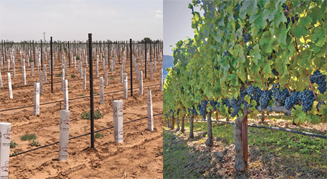
Clearly you were very intentional and strategic about setting out on a new path. Can you walk us through that?
When we realized in our mid-40s that we wanted to start a business, we started saving our bonuses and payouts from various different long term incentive plans and earmarking those funds for the business. At one point, Mike was offered a job that took his income up considerably, which helped with the decision of which one of us was going to leave our jobs first. We knew that one of us, whether it was me or Mike, couldn’t quit until the business was standing on its own. And so, there were milestones that we had to accomplish before we could go to the next step because we couldn't afford to not be strategic. We had to be smart because if I left my job too soon, I wouldn’t have enough time to recover and get my income back to what it was before I left the workplace. The next milestone is for the winery to be sustainably profitable so that Mike can quit work.
We made some other strategic decisions to prepare us for the transition. We paid for some things in cash so that we could reduce our debt before we took on a big loan for the building. We’ve reduced our personal expenses substantially so that we can afford to run the business.
What was it like starting something new in your fifties?
One of the things that I think is so important when you’re starting something new, is to be open to learning and being comfortable with not knowing the answer. This was honestly a difficult thing for me, because when you have been doing something for 30 years, you know the ins and outs. We educated ourselves as much as we could. We took wine certification classes. I took a marketing class and a tasting room management class. Mike took classes in viticulture and enology. Even though we had taken a bunch of classes, the experience was kind of like when you graduate college. You think you're really smart but then you walk into your first job, and you realize that you only know 20% of what you actually need to know to do your job. That part is uncomfortable because when you get to a certain level and age in your career, you’re pretty confident with your knowledge base. It’s very humbling to say, ‘I don’t know.’ Mike and I laugh and tell the story of when we got our first tractor delivered. The guy was like, ‘ok, here’s the keys,’ and we were like, ‘wait, no we need a lesson on how to drive it!’
